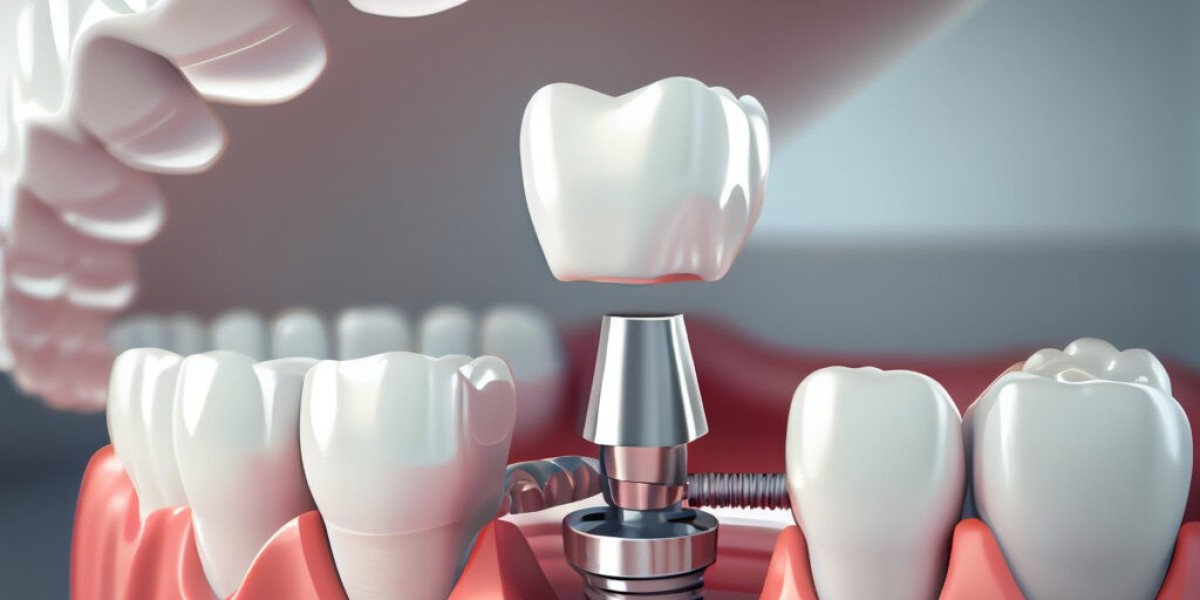Are you considering dental implants to restore your smile and confidence? Before taking the leap into this life-changing procedure, it's essential to be well-informed about what to expect. From understanding the types of dental implants available to knowing how to ensure long-lasting results, this comprehensive guide will walk you through everything you need to know before getting dental implants. So, let's dive in and uncover the important facts together!
What are Dental Implants?
Dental implants are titanium posts surgically inserted into the jawbone to replace missing teeth. These posts act as artificial tooth roots, providing a sturdy foundation for dental restorations like crowns or bridges. Unlike traditional dentures, implants offer a permanent solution that closely resembles natural teeth in both function and appearance.
One of the key benefits of dental implants is their ability to prevent bone loss in the jaw. When a tooth is lost, the surrounding bone can deteriorate over time. Implants stimulate the bone through chewing and biting, helping to maintain its strength and density.
Moreover, dental implants eliminate concerns about slippage or discomfort often associated with removable dentures. With proper care and maintenance, implants can last a lifetime, making them a durable option for tooth replacement that enhances overall oral health.
Types of Dental Implants
When it comes to dental implants, there are different types available based on individual needs and preferences. The most common type is endosteal implants, which are surgically implanted into the jawbone. These implants provide a sturdy foundation for artificial teeth.
Another type is subperiosteal implants that are placed on top of the jawbone but underneath the gum tissue. This option is suitable for patients who may not have enough healthy jawbone to support traditional implants.
For those looking for a less invasive option, mini dental implants could be a solution. These smaller implants can often be placed in a single appointment without the need for extensive surgery.
No matter the type of dental implant you choose, consulting with your dentist or oral surgeon will help determine the best option for restoring your smile and improving your overall oral health.
The Procedure: What to Expect
When it comes to getting dental implants, knowing what to expect during the procedure can help ease any anxieties you may have. The process typically involves several steps that are carefully planned and executed by a skilled dental professional.
Your dentist will conduct a thorough examination of your oral health to determine if you are a suitable candidate for dental implants. This may include X-rays and impressions of your teeth.
Next, the implant placement procedure will take place. This involves surgically placing the titanium implant into your jawbone, which will serve as a sturdy foundation for the artificial tooth or teeth.
After the implant is placed, there is a healing period where osseointegration occurs – this is when the bone fuses with the implant to create a strong bond.
Once healing is complete, an abutment is attached to the implant, which connects the artificial tooth or crown.
Understanding each step of the dental implant procedure can help you feel more prepared and confident before undergoing treatment.
Benefits of Dental Implants
Dental implants offer numerous benefits that can enhance your oral health and overall quality of life. One of the key advantages is their durability - they are designed to last for many years, providing a long-term solution for missing teeth. Unlike dentures, implants are firmly anchored in the jawbone, offering stability and functionality similar to natural teeth.
Another significant benefit of dental implants is improved comfort and convenience. Since they become a permanent part of your mouth, you can eat, speak, and smile with confidence knowing that your implants will not slip or shift like traditional dentures. This stability also contributes to better chewing efficiency, allowing you to enjoy a wider variety of foods without restrictions.
Moreover, dental implants help preserve bone density in the jaw by stimulating natural bone growth through osseointegration. This process prevents further bone loss common with missing teeth and maintains facial structure integrity over time. Additionally, dental implants do not require alteration or support from adjacent healthy teeth like bridges do, promoting better oral hygiene practices.
Choosing dental implants can significantly improve your self-esteem by restoring your smile's appearance and function with a long-lasting solution that feels natural and secure within your mouth.
Risks and Complications
When considering dental implants, it's essential to be aware of the potential risks and complications that may arise during or after the procedure. While dental implant surgery is generally safe, like any surgical procedure, there are risks involved.
One common risk is infection at the implant site, which can lead to discomfort and even implant failure if not treated promptly. Additionally, some patients may experience nerve damage resulting in tingling or numbness in the mouth or face.
Complications such as improper placement of the implant can result in issues with bite alignment or discomfort when chewing. In rare cases, sinus problems could occur if upper implants protrude into the sinus cavities.
It's crucial to discuss these risks with your dentist beforehand and follow post-operative care instructions diligently to minimize any potential complications.
Aftercare: How to Ensure Long-Lasting Results
After getting dental implants, proper aftercare is essential to ensure long-lasting results. Maintaining good oral hygiene by brushing and flossing regularly is crucial to prevent infection and promote healing around the implant area. Your dentist may recommend using a special mouthwash or antibacterial rinse to keep your mouth clean.
Avoiding hard foods that can put pressure on the implants is important during the initial healing period. It's also advisable to quit smoking as it can hinder the healing process and increase the risk of complications. Regular visits to your dentist for check-ups and professional cleanings will help monitor the health of your implants and address any issues promptly.
In case of any discomfort, swelling, or unusual symptoms around the implant site, don't hesitate to contact your dentist for guidance. Following their post-operative instructions diligently will contribute significantly to the success of your dental implant procedure in the long run.
Cost of Dental Implants and Insurance Coverage
When considering dental implants, one important factor to keep in mind is the cost associated with the procedure. Dental implants are typically considered a long-term investment in your oral health and quality of life. The cost of dental implants can vary depending on various factors such as the number of implants needed, any additional procedures required, and the location of the dental practice.
It's essential to inquire about insurance coverage for dental implants before proceeding with the treatment. While some dental insurance plans may offer partial coverage for implants, it's crucial to check with your provider to understand what expenses will be covered and what out-of-pocket costs you may incur.
Many dentists also offer financing options or payment plans to help make dental implant treatment more affordable for patients. Be sure to discuss all financial aspects with your dentist beforehand so that you can plan accordingly and make informed decisions about your oral health care.
Alternative Options for Tooth Replacement
When considering tooth replacement options, dental implants are a popular choice for their durability and natural look. However, they may not be suitable for everyone due to various reasons such as cost or health factors. In such cases, there are alternative options available that can also restore your smile effectively.
One common alternative to dental implants is a fixed bridge, which involves attaching artificial teeth to the adjacent natural teeth. This option provides stability and functionality but may require more maintenance over time.
Another option is removable dentures, which are a more affordable choice for replacing missing teeth. While dentures can be easily taken out for cleaning and sleeping, some people find them less comfortable than implants or bridges.
For those looking for a minimally invasive solution, dental bonding or veneers can be used to improve the appearance of damaged or missing teeth without surgery. These cosmetic treatments offer aesthetic benefits but may not provide the same level of function as implants.
It's essential to consult with your dentist to discuss all available tooth replacement options and determine the best fit for your specific needs and preferences.
Choosing the Right Dentist for Your Dental Implant Procedure
Choosing the right dentist for your dental implant procedure is crucial for a successful outcome. Look for a dentist who is experienced and specialized in implant dentistry. Check their qualifications, certifications, and years of practice in performing dental implant procedures.
It's essential to schedule a consultation with the dentist to discuss your specific needs and concerns regarding the implant procedure. During this meeting, ask about the dentist's approach, success rates, and post-operative care instructions.
Consider reading reviews or asking for referrals from friends or family who have undergone dental implant procedures. A reputable dentist will have positive feedback from satisfied patients highlighting their professionalism and skill in performing implants.
Don't hesitate to inquire about the technology and materials used by the dentist during the procedure. Advanced technology can enhance precision and efficiency, leading to better results and shorter recovery times.
Trust your instincts when choosing a dentist for your dental implants. Feeling comfortable with your chosen provider can help alleviate any anxiety or apprehension you may have about undergoing the procedure.
Conclusion
Dental implants are a modern and effective solution for replacing missing teeth. With their natural look and feel, along with the ability to restore functionality and confidence in your smile, they have become a popular choice for many individuals seeking permanent tooth replacement options.
Before deciding on getting dental implants, it is crucial to understand the types of implants available, what the procedure entails, the benefits versus risks involved, aftercare requirements for long-lasting results, as well as costs and insurance coverage considerations. Additionally, choosing the right dentist with experience in implant procedures is paramount for a successful outcome.
Dental implants can significantly improve your quality of life by enhancing both your oral health and overall well-being. If you are considering this option, make sure to educate yourself on all aspects of the process so that you can make an informed decision that best suits your needs.








